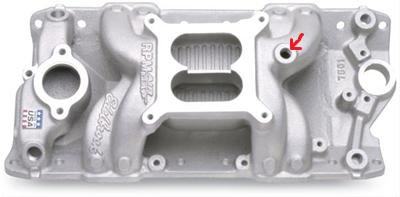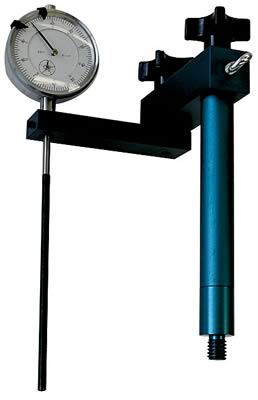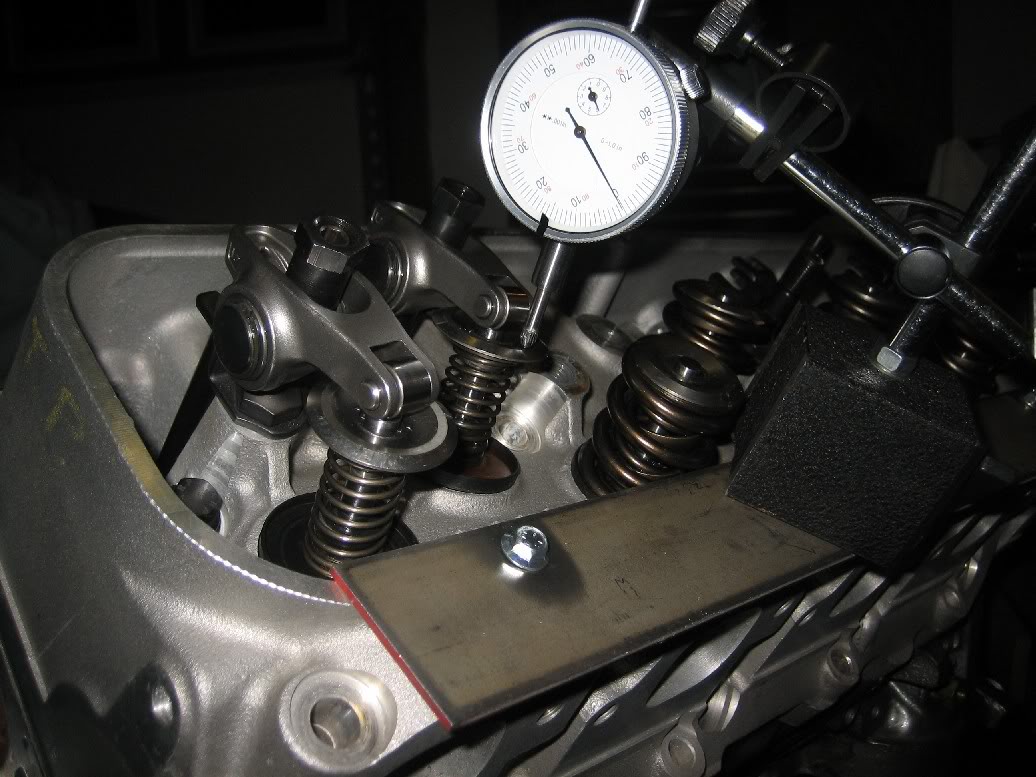64cv said:Can't figure this out. I have a carbureated 383 Gen 1 with 14,000 miles, a dual plane air gap manifold and a relatively new HEI distributor. It's a Holley street avenger with vacuum secondaries. No recent changes to the car and two weeks ago it was running great. Last week it started stumbling a bit and now it runs like crap. I'm missing a cylinder and can't figure out why.
I pulled the plugs and they were all nice light to dark tan except for the #8 cylinder which was white. With the engine running I pulled the plug wire; no change in rough idle but I could hear the spark jumping from the wire to the plug. Put it back and pulled other plug wires and the idle immediately degraded like you'd expect.
Did a physical inspection and resistance check on all the wires, everything looks fine and resistance is 125 - 175 ohms.
Pulled the distributor cap and looked inside. Even wear on all the contacts and no visible defects.
Checked for vacuum leaks and re-torqued the intake manifold to specifications. Nothing.
Replaced the #8 plug and drove about 10 miles. No change; pulled the plug and it looked as clean as it came out of the box, like not a single combustion event had occurred.
Pulled the valve cover and the adjustment was fine on the #8 valves and the rockers and push rods looked fine.
Ran a compression check on the #8 cylinder and found 150 psi.
Adjusted the carb floats and adjusted idle mixture; nothing.
Checked the timing, 14 deg; perfect. It's what the car likes with a 234/244 cam.
I'm really stumped. All the signs say that combustion is not occurring in the #8 cylinder. As is always said, it's either fuel or spark.
Any ideas?
Here's what I'm going to do tomorrow but I'm not optimistic:
1. Put a timing light on #8 plug wire and see if it triggers.
2. Pull opposite plug wire, number 5, and see if it smooths out and runs like a V6 indicating that yes, no combustion is happening in #8.
3. Try a new plug wire on #8.
4. Pull the valve cover and watch the valves while turning the engine by hand to confirm the valves are operating correctly.
5. Pull the carb and look for a bad gasket and other sources of vacuum leaks.
6. Pull the manifold; check the gasket and look for leaks.
Brad
SLOW DOWN AND DO SOME TESTING< THINK IT THRU! DON,T RUSH< THINK! TEST!
it sure sounds like a vacuum leak caused by a loose vacume hose or leaking intake gasket
READ AND FOLLOW THIS LINK
viewtopic.php?f=44&t=882&p=1390&hilit=+propane+torch+leaks#p1390

its very common for the brake booster or the PVC line or connections,you hook to this fitting or the line it self leaking to cause that
Always deal in FACTS, don,t guess, ID start by doing a compression test on all cylinders so you can compare results and if it was my engine Id get out a stand and dial indicator and measure the valve lift on #8 and a known good cylinder as a cross check
Proform Parts 66830 - Proform Cam Checking Fixture Kits
http://www.summitracing.com/parts/pro-66830


if the cylinders running leaner or not firing theres a reason and youll find it thru basic testing, if the fuel airs not getting burnt its not getting in, or its not getting compressed or its not getting burnt, and that can all be tested
